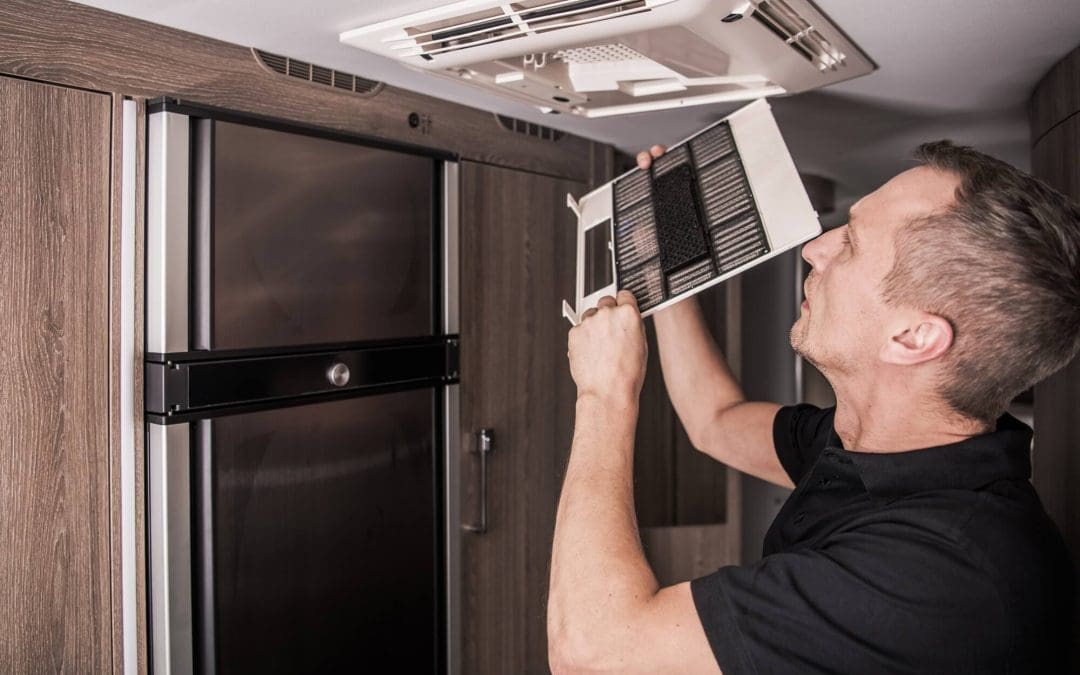Buying an RV is an exciting step for anyone who loves hitting the open road and exploring new places. Whether you’re looking at a brand-new RV or a pre-owned one, making sure it’s in good condition before you drive off is crucial. That’s where an RV inspection comes in. Getting an RV inspected at the right time can save you money, time, and future hassles. In this post, we’ll cover when to schedule an RV inspection, why it’s so important, and what happens during the inspection process.
When to Order an RV Inspection
1. Before Buying a Used RV: The best time to get an RV inspection is before you buy a used one. Even if the RV looks great on the outside and seems well-maintained, there could be hidden problems you wouldn’t notice during a quick walk-around.
An inspection can reveal issues with critical systems like the engine, brakes, electrical, plumbing, or even the RV’s structure. By scheduling an inspection before finalizing the deal, you’ll have the chance to renegotiate the price based on what’s found—or walk away if the problems are too big to handle.
2. After Buying a New RV: You’d expect a brand-new RV to be in perfect shape, but even new models can have manufacturing defects or transport damage. That’s why it’s a smart idea to schedule an inspection shortly after your purchase to make sure everything is working as it should.
An early inspection can catch minor issues before they turn into bigger (and more expensive) problems. Plus, if your RV is still under warranty, you can address any repairs right away without extra costs, protecting your investment in the long run.
3. Before a Long Trip: If you’ve owned your RV for some time and are planning a long road trip, an inspection is a must. Whether it’s been sitting in storage or you’re heading out on a cross-country adventure, an inspection ensures everything is safe, and you’re ready to roll.
This type of checkup focuses on key components like the engine, tires, and brakes to make sure they’re road-ready. It also covers the water systems, electrical systems, and HVAC so you can avoid unexpected surprises and enjoy a smooth trip.
4. When Selling Your RV: If you’re preparing to sell your RV, a pre-sale inspection can boost its value and make the process smoother. Having a professional inspection report on hand shows potential buyers that your RV has been well cared for and gives them added confidence in their purchase.
It also gives you a chance to fix any issues before listing your RV, which can help you price it higher and negotiate from a stronger position. Plus, since many buyers will want an inspection anyway, taking care of it upfront can speed up the sale.
What to Expect During an RV Inspection
When you schedule an RV inspection, a certified inspector will take a close look at the entire vehicle—inside and out. They’ll check key systems like the engine, transmission, plumbing, electrical, HVAC, and more. Depending on the inspection level, they might also examine the roof, undercarriage, and safety features to ensure everything is in good working order.
Afterward, you’ll receive a detailed report outlining any issues, recommended repairs, and the overall condition of the RV. This report is incredibly useful, whether you’re buying, selling, or just keeping your RV in top shape.
Getting an RV inspection at the right time is essential for protecting your investment and ensuring safety. Whether you’re buying, selling, or preparing for a trip, an inspection gives you a clear picture of your RV’s condition. By catching hidden issues early, you can save money, avoid stress, and fully enjoy the freedom and adventure RV life has to offer.
FAQs
Do I need an RV inspection if the RV is under warranty?
Yes, an inspection is still a good idea, even if your RV is under warranty. Manufacturer warranties cover defects, but that doesn’t mean every component is working perfectly right off the lot. An inspection ensures your RV is in great shape and lets you address any issues while they’re still covered, saving you from costly repairs later.
Can I attend the RV inspection?
Absolutely! Most inspectors encourage the buyer or owner to be present during the inspection. This gives you a chance to ask questions, understand the RV’s condition, and pick up valuable maintenance tips from the inspector.
What happens if the inspection finds significant issues?
If the inspection uncovers major problems, you have options. As a buyer, you can negotiate a lower price, request repairs, or walk away from the deal. If you already own the RV, you’ll need to prioritize repairs, especially if the issues impact safety. Catching problems early is always better than dealing with a breakdown on the road!
USRV Inspector provides professional RV inspection services to RV owners and sellers across the United States. Contact us to schedule an appointment.

